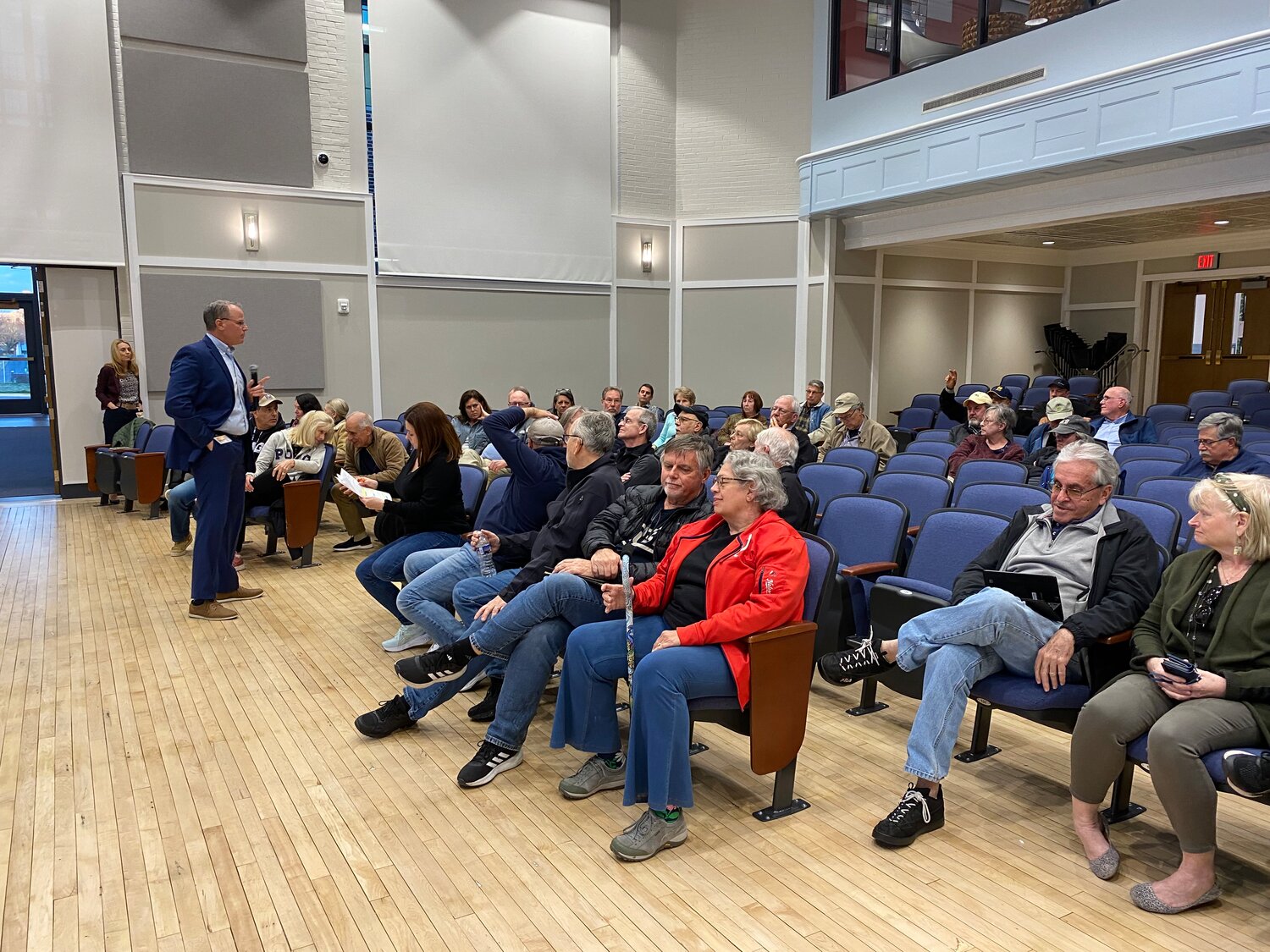Development concerns dominate Cape Henlopen referendum meeting
While a Monday meeting about the upcoming Cape Henlopen School District referendum was intended to describe the operational and capital expenses proposed, the audience was focused on development issues.

You must be a member to read this story.
Join our family of readers for as little as $5 per month and support local, unbiased journalism.
Already a member? Log in to continue. Otherwise, follow the link below to join.
Please log in to continue |
Development concerns dominate Cape Henlopen referendum meeting
LEWES — While a Monday meeting about the upcoming Cape Henlopen School District referendum was intended to describe the operational and capital expenses proposed, the audience was focused on development issues.
Traffic and other infrastructure worries were big topics, but district officials maintained they have little control over growth in the area.
Dr. Bob Fulton, Cape’s superintendent, hosted the third town hall about the potential tax hike at Lewes Elementary School. It was the final session before the vote Tuesday.
Dr. Fulton said he has met or will meet with many other more specialized groups this month, including parent-teacher organizations, realty agents and students of voting age.
So far, feedback has been overwhelmingly positive, he told the crowd Monday.
“I am here to offer you what I think is the best value for our students, families and community,” Dr. Fulton said. “If I didn’t think this were true, I wouldn’t offer it.”
While the referendum proposal is divided into two parts, voters will only be answering one question — whether to approve a tax hike of $0.549 per $100 of assessed property value this year.
It wasn’t so much the $0.335 per $100 assessed to cover operational expenses that has been questioned, Dr. Fulton said, but the capital projects portion, which is $0.214 per $100 assessed.
Those expenses, coming from local taxpayers only, include a $15 million purchase of 102 acres of land, $21.5 million for construction of a district office, $6 million for a transportation maintenance facility and about $36.1 million for an indoor swimming complex.
The pool and property purchases were the most heavily criticized at Monday’s gathering.
In response, Dr. Fulton said the pool would be used to teach each of the more than 6,000 Cape students to swim, to allow lifeguard or scuba training and to host any number of swim teams or leagues that don’t have access to a similar facility within 100 miles.
He also refuted the notion offered by several audience members that the facility would only support Cape’s 70-member swim squad or that it represents an investment for just that select group of students.
As for the land, Dr. Fulton said last year that the district looked for property that an owner would sell for less than what might be obtained from a developer, that would meet stringent state requirements and that could be used for an elementary or middle school.
Finding exactly one person willing to meet those criteria, he said the district has a deal to purchase 102 acres for $150,000 per acre, should the referendum pass. For several at the meeting, the problem with this is its location.
The parcel is in Rehoboth Beach, off Del. 1D and Del. 24 and bordered by Mulberry Knoll and Cedar Grove roads. Critics argue that it’s too close to Love Creek Elementary and Beacon Middle schools, and the resulting traffic will overburden already congested roads there.
Dr. Fulton acknowledged these concerns; however, he said the schools have no control over the roads or the construction efforts behind them. Traffic, he said, is the Department of Transportation’s purview and would be addressed only after voters approve the referendum.
Audience members also expressed concern about the orientation of buildings on the site, design work that hasn’t been completed nor is required until after referendum approval. Dr. Fulton replied that it could be viewed as negligent if the district spent thousands of dollars on a potential design of a facility that voters ultimately reject.
For the bus maintenance facility — where the district’s fleet of about 50 buses could have regular maintenance performed rather than sending them out to multiple vendors, as is done currently — and the planned district office, the attendees were again worried about location and need.
Dr. Fulton said the site was the only one available to the district at the time and repeated his earlier statements about the necessity for new facilities.
Finally, but pervasively, the issue of cost threaded through the discussion. Currently, the property tax rate is derived from a number of factors, one of which is property assessment, which determines the tax rate on a parcel of land and any improvements.
Sussex County, along with the rest of Delaware, uses values determined in the 1970s and will be using them for another year or two, while a court-mandated comprehensive reassessment is finalized.
Assessment value doesn’t necessarily conjoin with market value, as the average assessed home in Sussex County is valued around $24,000. And the reassessment is not intended to be a boon to local governments and facilities, as they can only legally bring in 10% more year-over-year, Dr. Fulton said.
So, while the tax rate will almost certainly change with reassessment, the dollar value of the taxes shouldn’t change that much. However, Dr. Fulton said, the district is part of that system, not the administrator of it.
“I think the Venn diagram of this conversation would have us discussing the gray areas,” added Dr. Alison Myers, Cape’s school board president.
Dr. Myers and Dr. Fulton agreed that the audience concerns were valid but not within control of the school district.


 By
By 



